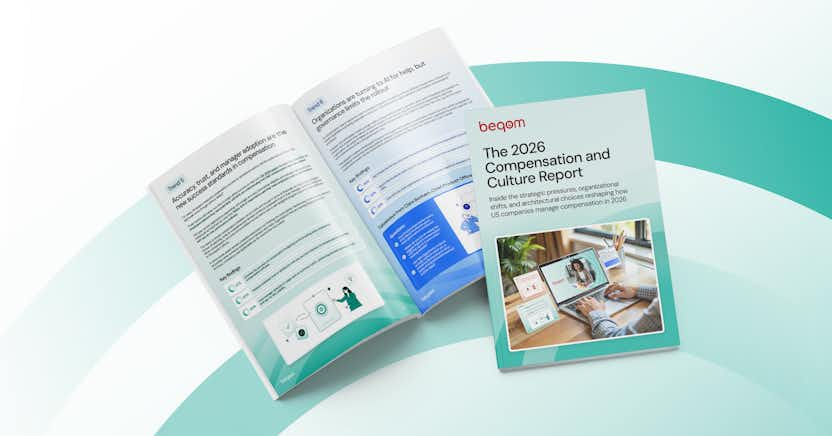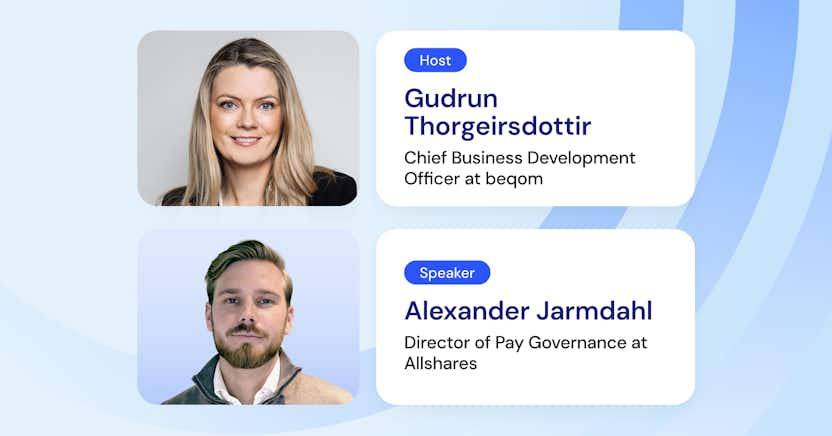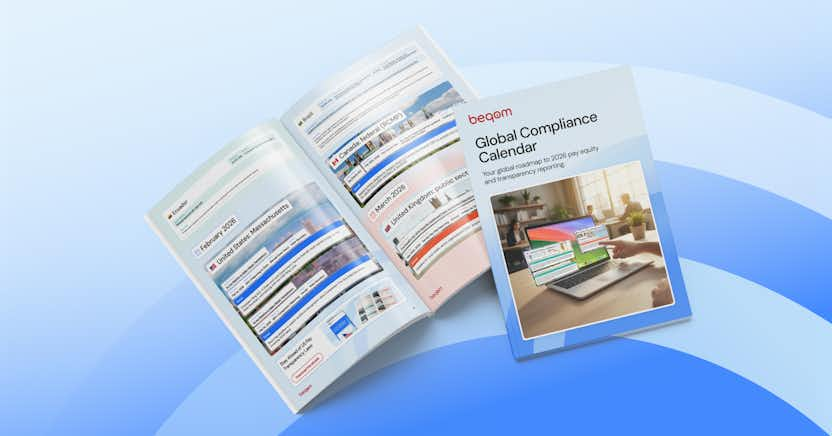3 Simple Ways to Improve Employee Engagement Right Now

Learn more about the following beqom products
It is often said that employees are the most valuable assets an organization has. It’s their abilities, experience, and knowledge that help a company achieve its goals. Therefore, it is important for organizations to prioritize employee engagement to build a better workplace culture. This can, in turn, reduce staff turnover, increase productivity, build better client relationships, and even impact company profits.
However, it can be difficult to know where to start when looking at an employee engagement strategy, that’s why we have identified three areas you can focus on to make your journey easier.
1. Allow employees greater autonomy
Autonomy is critical when fostering employee motivation. A culture of freedom and responsibility not only allows employees to pursue ideas they find enjoyable but also allows them to strive to keep innovating as the organization grows.
Allowing for greater autonomy can help boost employees’ sense of confidence. People tend to avoid work tasks they lack the confidence to complete; therefore, confidence is vital to encourage employees to initiate tasks that are more enjoyable.
To enhance employees’ confidence, consider a mentorship program. For example, Google managers receive just-in-time emails the Sunday before a new employee starts, which remind them to match new employees with a peer buddy and build their social network. This found that managers within Google who followed the onboarding checklist had team members become fully effective 25% faster than those whose managers did not follow it.
2. Align your mission with employee values
Employees are increasingly holding companies to a higher standard regarding environmental, social, and governance (ESG) goals. beqom research shows that two-thirds (66%) of employees do more research into a company’s Corporate Social Responsibility (CSR) efforts now than prior to the pandemic. If your organization’s mission is to have some societal impact then it’s easier for employees to align their values with those of the company, which boosts loyalty, creativity, and productivity.
An automated rewards platform enables compensation practices that support the social and governance aspects of ESG while helping companies achieve broader ESG goals through effective performance management. Linking ESG performance to pay can help hold management to account for the delivery of sustainable business goals.
Another way to do this is to show employees how their day-to-day work connects with the organization’s purpose. For example, an insurance agent might reframe their work as getting people back on track after an accident rather than simply processing paperwork. For new hires, consider restructuring job descriptions to connect directly to the organization’s mission. This will also ensure you hire candidates that align with your company culture and values.
3. Reward employees – but not just with money
While pay is still the top criteria for selecting a job, that doesn’t mean that salary is the only consideration. beqom’s Employee Expectations in Hiring report found that employees might be willing to take a salary that is lower than the market average for benefits such as flexible working hours (77%), remote work options (71%), or a higher number of PTO days (70%). Other factors identified as influential in lieu of a market salary: a learning stipend or tuition reimbursement to invest in upskilling (60%) and even a higher title (58%).
Another approach is to broaden the use of equity, which not only can lessen the upward pressure on cash compensation but can help create pride of ownership and give valued employees a vested interest in the company for the long term.
Transparency and communication can also go a long way. Conversely, a lack of transparency around compensation can be demotivating. beqom’s 2022 Compensation and Culture Report revealed that most employees don’t actually understand their compensation. It’s important to communicate total rewards clearly to employees, so they understand exactly what value they are receiving, and how their pay was determined.
Might you benefit from new tools to increase employee engagement, through people-centric performance management and effective, personalized rewards? If so, contact a performance and rewards expert at beqom to discover what’s available and how you can get started.








